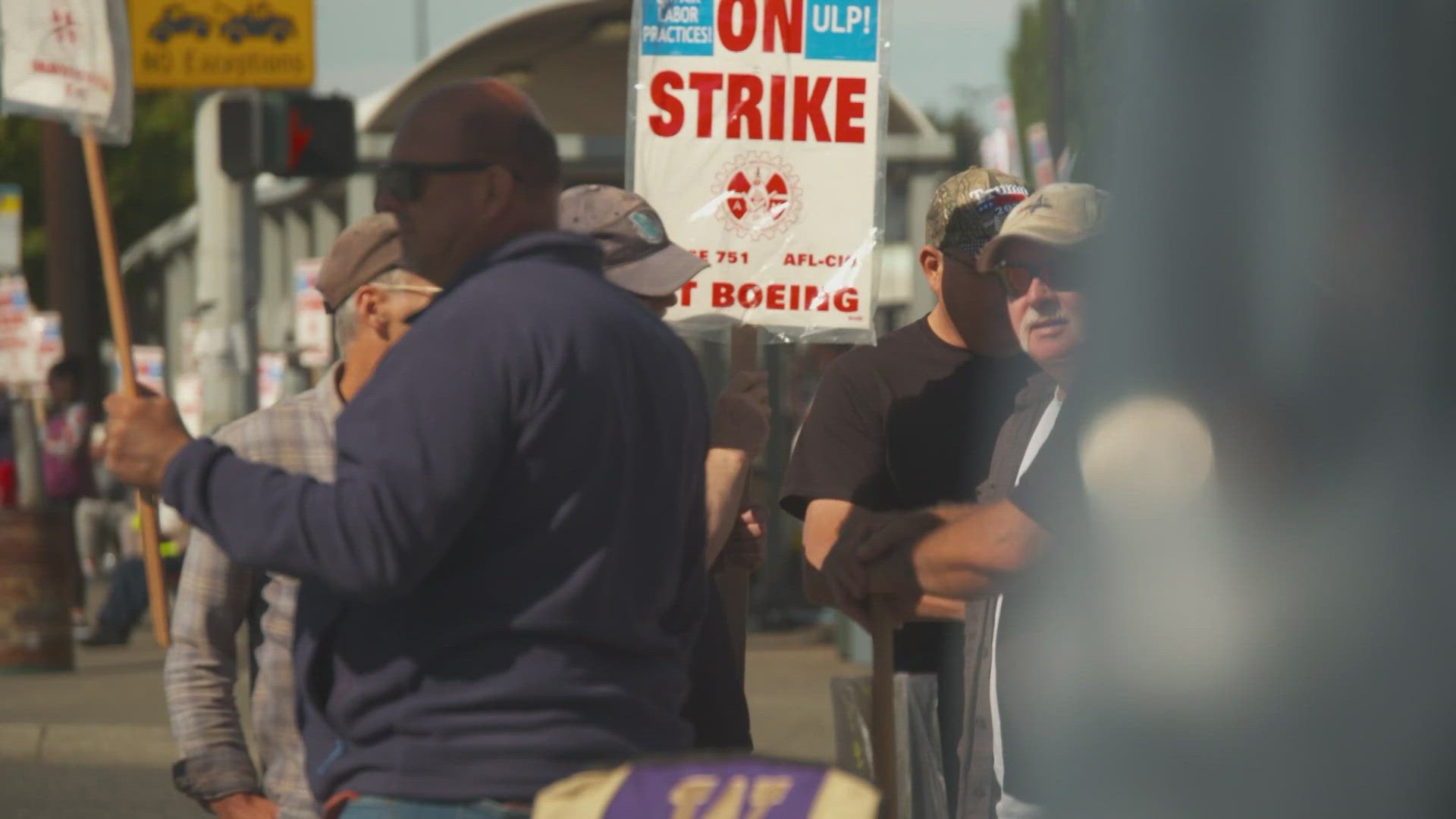RENTON, Wash. — The machinists' strike could cost Boeing more than $1 billion a month, per a new estimate from S&P Global that was released on Tuesday.
Over 30,000 Boeing employees have been on the picket lines for over three weeks now in the midst of patchy and unproductive contract negotiations with the company. Unionized machinists under the IAM District 751 are asking for a 40% pay raise and reinstatement of the company's pension program in the first negotiations between them and the company in ten years. Boeing has insisted that a 30% raise and increased retirement contributions are the best they can do. Both sides have indicated they are far from reaching an agreement.
While the strike remains ongoing, work on many Boeing jet models has come to a halt, including the most profitable, the 737 Max. S&P anticipates that Boeing will not be able to reach its goal of ramping up production to 38 Max planes a month by the end of 2024.
That, paired with unprofitable defense contracts, and ongoing financial recovery from the deadly Max crashes and the door plug blowout earlier this year, is anticipated to suck up about $10 billion of the company's cash, S&P estimated. As a result, the S&P put the company on CreditWatch, with the possibility of downgrading the company's credit rating by the end of the year.
Right now, Boeing is graded a BBB- on the S&P scale, meaning the company has "adequate capacity to meet financial commitments," but is "more subject to adverse economic conditions." With the strike nearing the end of its first month with no end in sight, the financial analysis company could downgrade the aerospace manufacturer to a BB rating, meaning it faces "major ongoing uncertainties to adverse business, financial and economic conditions." This would drop the company below an investment-grade rating.
In a statement sent Tuesday night, Boeing COO Stephanie Pope said the strike has "deeply affected our business, our customers and our communities," but said the company remains committed to reaching an agreement with machinists that "recognizes our employees and preserves our company's future." Pope alleged that during the latest negotiations the union made demands "far in excess of what can be accepted if we are to remain competitive."
The IAM District 751 negotiating committee similarly released a statement expressing frustration with the negotiation process, saying Boeing was sticking to a proposal issued on Sept. 23 that was not negotiated, and that the company refused to entertain proposals of further wage increases, vacation or sick leave accrual, ratification bonuses or 401k match/SCRC contributions.
The union advised that Boeing has now withdrawn the Sept. 23 offer. It's unknown what that means for further negotiations.

